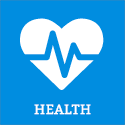
Millions of people take over-the-counter NSAID (non-steroidal anti-inflammatory drug) pain medicines when they have a headache, fever, chills, joint pain or various other aches and pains. A recent study shows that NSAIDs are associated with increased risk for heart attacks (British Medical Journal, May 9, 2017). The increased risk begins within the first week to month a person starts taking them.
NSAIDs include ibuprofen (Advil, Motrin), naproxen (Aleve), diclofenac (Cambia, Cataflam, Voltaren-XR, Zipsor, Zorvolex), celecoxib (Celebrex), etodolac (Lodine-discontinued), indomethacin (Indocin), Rofecoxib, diflunisal (Dolobid-discontinued), and a withdrawn prescription drug called Vioxx. Acetominophen (Tylenol) is not an NSAID.
The Study
The researchers reviewed 82 studies covering 446,000 people and found that:
- People who used NSAIDs at any dose for one week to one month had a 20 to 50 percent increased risk of suffering a heart attack during the study period. Rofecoxib doubled the risk and ibuprofen and naproxen each increased the risk 75 percent.
- Higher doses increased heart attack risk. For example, heart attack risk increased more than 50 percent if the recommended dose of ibuprofen was doubled from 200 to 400 mg three times a day, and 75 percent if the dose of naproxen was raised from 250 to 500 mg twice a day.
- The risk did not continue to increase when the NSAIDs were taken for more than for one month.
- The increased risk dropped to below 11 percent one month after people stopped taking the NSAID.
- People most likely to suffer a heart attack associated with taking NSAIDs were the ones with major risk factors such as high blood pressure, high cholesterol, high blood sugar or high insulin.
The U.S. Food and Drug Administration has warned people with heart disease or high blood pressure to try to avoid NSAIDs. The American Heart Association advises people first to try acetaminophen (Tylenol).
How NSAIDs May Cause Heart Attacks
NSAIDs can increase clotting. A heart attack is not caused by narrowed, partially blocked arteries; it is caused by sudden complete obstruction of the blood flow to a part of the heart muscle. Usually a plaque breaks off from an artery leading to the heart, and a clot forms at the site where the plaque broke off from the artery. Then the clot extends to obstruct blood flow to the heart muscle completely, and the heart muscle dies from lack of oxygen. The heart can then stop beating, which can kill you.
Many well-controlled studies show that aspirin helps to prevent heart attacks because aspirin prevents clotting, the actual cause of a heart attack. NSAIDs block the anti-clotting effects of aspirin. The FDA recommends that a person should not take NSAIDs within eight hours before or 30 minutes after taking aspirin.
My Recommendations
NSAIDs are probably safe for most people at low risk for heart attacks, and they are certainly a lot safer than narcotics for pain control. However, you should think twice about taking NSAIDs if you:
- have had a heart attack or have diabetes
- have risk factors for a heart attack such as high bloodpressure, cholesterol, triglycerides, insulin or blood sugar
- have a family history of heart attacks
- store fat primarily in your belly
- have chest pain with exercise or at any other time.
If you do take NSAIDs, take them at the lowest effective dose and try to take them for the shortest possible time period.
Gabe Mirkin, M.D., is a sports medicine doctor and fitness guru. A practicing physician for more than 50 years and a radio talk show host for 25 years, Dr. Mirkin has run more than 40 marathons and is now a serious tandem bike rider with his wife, Diana. His website is http://drmirkin.com/. Click to read Gabe’s full bio.
Leave a Reply